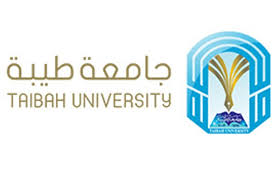This special session is organized by Artificial Intelligence Research Group, Department of Computer Science, College of Computer Science & Engineering, Taibah University, Madinah, Saudi Arabia
Synopsis:
In this smart planet Machine Learning and Natural Language Processing are the buzzwords whirling around all walks of life. Nowadays, machine learning and Natural Language Processing techniques and applications have become one of the sprightliest attention of current technology developments. In fact, machine learning and Natural language processing techniques has proved to have superhuman abilities in numerous fields such as self-driving cars, fraud detection, medical image classification, web-searches, image and speech recognition, email/spam filtering, pattern recognition , biometric systems ,credit scores, ontologies , corpora , lexical databases, linguistic, sociolinguistic , psycholinguistic, historical and literary issues of the language and culture are powered by machine learning and Natural Language processing algorithms and are huge parts of our daily life. Systems like web search engines and Google Translate rely more and more on huge repositories of structured language data and levels of linguistic information automatically provided through Machine Learning and NLP tools.
Topics:
This special session aims to bring together academic researchers, scholars, engineers, industrialists, and other professionals working towards scientific problems to address the aforementioned domains to exchange ideas on recent innovations trends in the research and applications of machine learning models and natural language processing technologies. It is expected that the exchanged ideas on recent research and future directions opens the way for collaborative investigations towards new discoveries and extensive enhancement of the cutting-edge technologies.
Topics of interest include, but are not limited to:
- Machine Learning models and applications
- Machine Learning and Information Retrieval
- Machine Learning for Web Navigation and Mining
- Machine Learning for Bioinformatics and Computational Biology
- Learning through Mobile Data Mining
- Text and Multimedia Mining through Machine Learning
- Image Analysis, Feature Extraction and Classification
- Anomaly detection through Machine Learning
- Theories and Models for Plausible Reasoning
- Computational Learning Theory
- Machine Translation, Crosslingual and Multilingual applications
- Natural Language Processing
- Information retrieval and extraction
- Social Media and Social Network Analysis
- Spoken Language Processing, Speech Generation and Recognition
- Sentiment analysis and classification.
- Text classification, summarization and compression
- Morphological analysis.
- Ontology
- Stemming, Tokenization, segmentation, chunking, parsing, POS
- Dialectal modeling
- Question Answering
- Named entity recognition
- Language technologies for cultural heritage
- Optical character recognition
- Digital epigraphy
- Artificial Intelligence and Recommender systems
- Neural Networks
- Deep Learning
- Pattern Recognition
- Computer Vision
Paper Submission:
Prospective authors are invited to submit full-length papers (not exceeding 6 pages) conform to the IEEE format . All papers will be handled and processed electronically via the EDAS online submission system.
Submission implies the willingness of at least one of the authors to register and present their papers.


